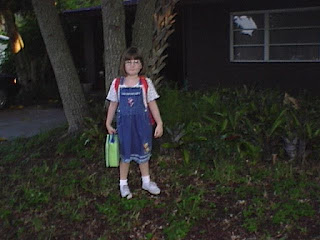My media feeds are inundated with vitriol from both sides of the spectrum. Maybe this is what we have been taught. The leaders of our country have been modeling just such behavior for years, and it seems that the disgust shown to one another has trickled down in a way economics never did to offer us more than we can possibly use. It is staggering in its negative message, and
yes I will use the appropriate buzz word here divisive at its core. There is no way a people who look upon one another with such disdain can hope to move forward in a positive way.
And that is simply unacceptable to me - as a parent, a teacher, a citizen, and a human I cannot sit by twiddling my thumbs while the virus of us versus them continues to spread. What is more, I cannot stand to sit by as this behavior is taught to my students, by means of the examples being set on every platform of social media, certainly not without fighting back.
I leave my politics firmly outside my classroom door. It is no educator's task to indoctrinate the young minds he is charged with teaching - the calling lies in giving them the tools to step up and form their own
hopefully valid & reliable (preferably peer reviewed) researched answers, opinions, and ideas - regardless of the subject. While teaching the fundamentals of research and argument is a standard practice, it dawned on me that perhaps I have, albeit inadvertently, been fueling this
us vs them mentality. My students are so focused on refuting the arguments posed by other students, and waiting to share their take on Okonkwo's deeply seated fear of becoming his father that they have forgotten how to
listen to each other.
Yes, it's a standard. Yes, we practice listening: to reports; to speeches; to stories.
But, we don't truly practice
listening to each other, allowing the
ideas of other students to truly get into our thoughts and to germinate. We don't allow the idea that the same piece of text, in context can lead to different opinions to grow. Until yesterday.
Yesterday I changed my lesson plan - 15 minutes before my first period. Without boring you to tears with the schematics of my lesson, I will share the basics. My students took a position on a harmless topic (relating to
Things Fall Apart) and spent a few minutes bullet pointing their support to prep for a discussion. Run-of-the-mill English stuff. Until the discussion.
They were
explicitly instructed to listen with open minds to their peers. To understand that though they may have said nay, there are likely elements of yea that they will see as valid. Yes, they could discuss, yes, they could debate one side - but the focus was not to "win" support for one side. Instead, the focus was to
understand each other.
They discussed. I watched and
prodded here and there, played a bit of devil's advocate facilitated.
Then it was time for reflection. Instead of reflecting on the conversation, they were instructed to reflect on opposing views that were valid or with which they could understand or agree given the support. Then they shared.
I was blown away.
Students who were staunch supporters of one view or another were sharing with the class their original position and what they felt was valid or what they hadn't even considered about the other position. They were listening and truly hearing one another - here was the evidence. A couple even changed their opinion - though I had made clear that this was not the goal - and far more was heard than when they typically argue their own side and feel the need to dig in further to support their own positions.
In the scheme of the world, it matters not one lick if my students believe the Ibo people were or were not a civilized culture - but this listening and sharing of ideas is the groundwork of a civilization that works. Who can ask for more?
So I say to you, grown-ups of the world, if my 9th graders can listen to understand one another - why can't you? You might be surprised at what you learn.

